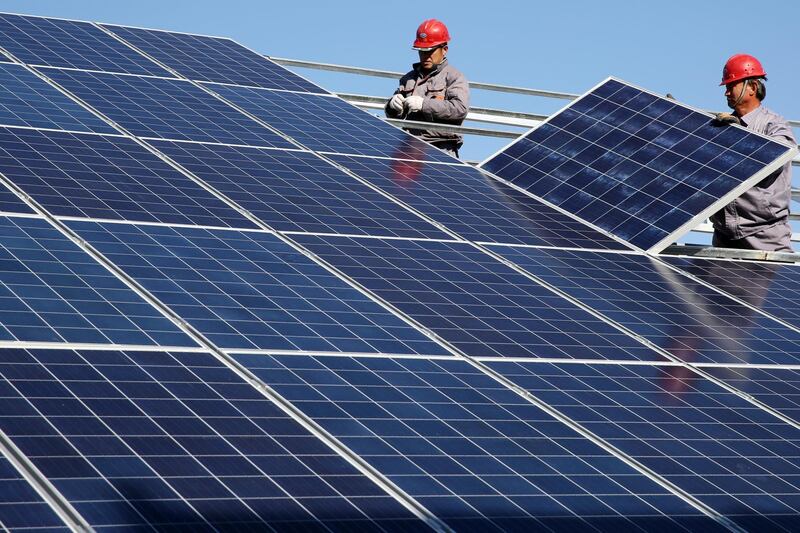Egypt's solar industry is becoming more attractive amid falling solar costs and intensified competition that will boost growth of utilities and energy in the Arab world's most populous nation, according to BMI Research.
"Rapidly falling solar costs across the globe amid technological improvements, intensified competition for new projects and increasing access to financing have heightened the attractiveness of Egypt's solar market and offer grounds for cautious optimism that investment in solar infrastructure is set to accelerate," BMI, a unit of Fitch Group, said.
The research firm said that solar bids in competitive auctions had plummeted over the past year because of falling equipment prices and greater competition, allowing governments to get cheaper asking prices. Last month, the lowest bid in Saudi Arabia by Masdar and EDF was for $17.8 per Megawatt-hour (Mwh) compared to the lowest bid $29.1 per MWh in Chile last year.
Read More: World Bank unit completes $653m solar deal for Egypt
The Egyptian government is also investing heavily in power generation because the country has a fast- growing population and it wants to avoid any potential civil unrest down the line.
"From a fundamental perspective, Egypt's power market generally and solar market in particular remain attractive," BMI said.
"With rapidly growing urban and youth populations stoking robust structural demand, Egypt's government will be compelled to invest aggressively in new power capacity over the next decade in order to forestall potential civil unrest; and while most of this capacity will be generated by thermal sources, the government's pledge to generate 20 per cent of the country's electricity and renewable sources by 2020 underscores the top-level government support investors can expect going forward."





